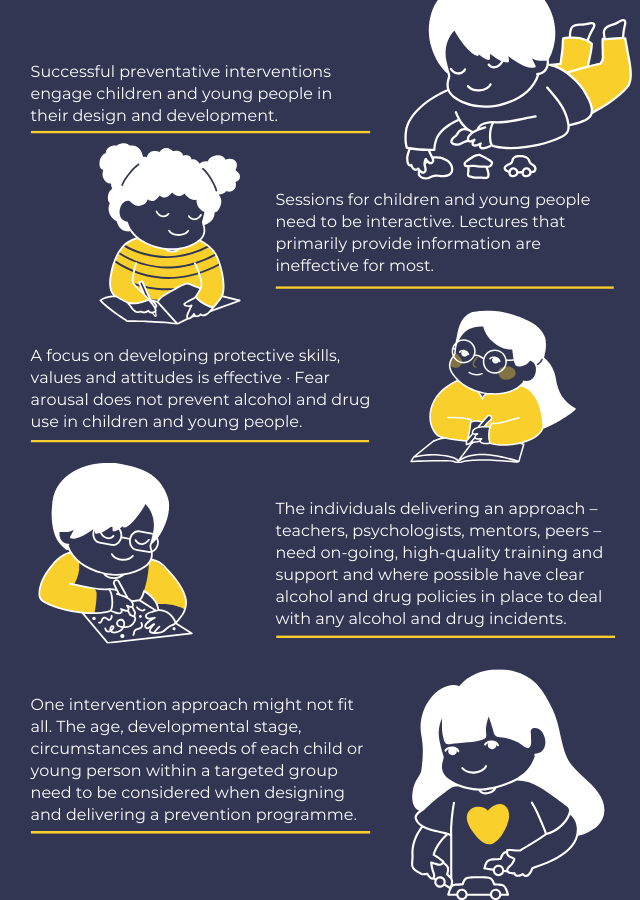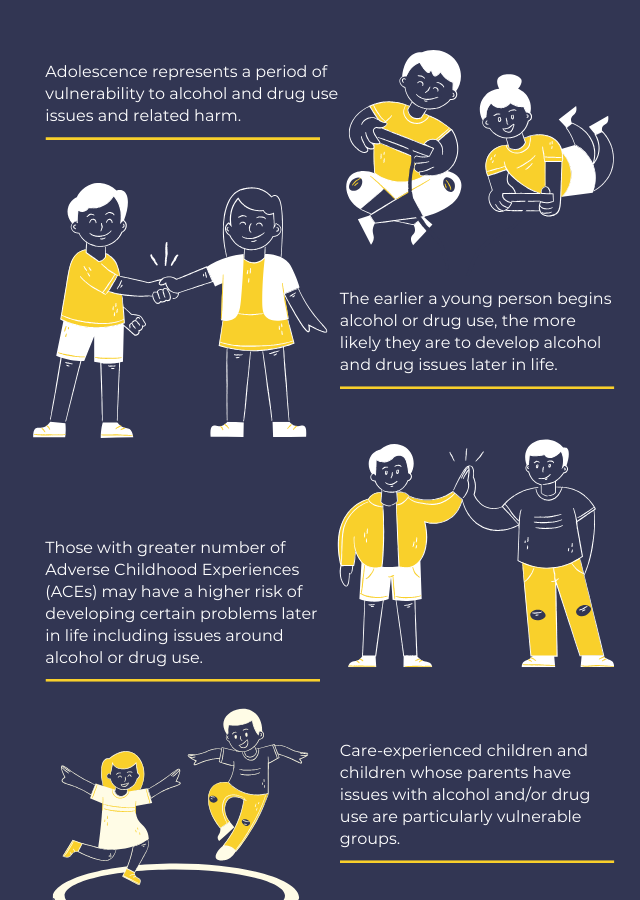
This is a briefing on what works for children and young people in preventing alcohol and drug use and related harm. It relates to interventions for individuals between the age of 5 and 24. However, it is important to note that there is a large cross over between this and the briefing on pre-birth, infancy and early years, as well as some crossover with the adults briefing.
Need to Know and Key Findings
- Good Practice
- Potential Stakeholders
- Families and children
- Education services
- Colleges and universities
- Social workers, youth workers
- Police Scotland
- Young people
- Employers
- Allied health professionals
- Primary care, acute care and youth health services
- Housing services
- Third sector service
- Full Evidence Briefing
To view the full Evidence Briefing for Children and Young People please click HERE.

